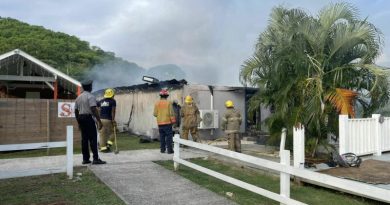Farm manager says production is less than it could be because of piped-water situation and low rainfall
Geno Browne, the manager of Wally Browne Farm, one of the largest
farms on island, says that production over the past year has fallen,
because regular pipe-borne water has been unavailable and rainfall
has been low.
Browne, whose farm is over 70 acres in size and a major producer of
sweet potatoes, watermelon, and pumpkins, says the farm has been
feeling the impact of not having readily available water – but has
been making do.
Given that Antigua and Barbuda is traditionally drought stricken,
Browne says there are no complaints in good times. Hence, in these
difficult times, as the local saying goes, “you band your belly” and
push through.
In the 14 years since he has taken over the farm, Browne says the
high yield of crops he expected has not materialized. Yet, he says, he
manages to push through and is thankful.
He has been forced to reduce the manpower on the farm by laying
off some workers, he admits, but has managed to retain a small staff
complement to keep things going and help to support their families.
The staff complement has moved from 14 during high operating
times to only five now; but this had to be done in order to remain
viable and operational, Browne explains.
Meanwhile, he notes that in order to enjoy bountiful production,
farms need water. Plant growth depends on many factors, he says,
but the availability of water is at the forefront.
Despite the water woes, Browne says he will not be deterred from
contributing to food security and giving back to his country, and he
declares that where there is a will, there is a way.
The Antigua Public Utilities Authority (APUA) produces more than
seven million gallons of water daily, Minister Melford Nicholas says.
Yet it is inadequate to meet national demands.




